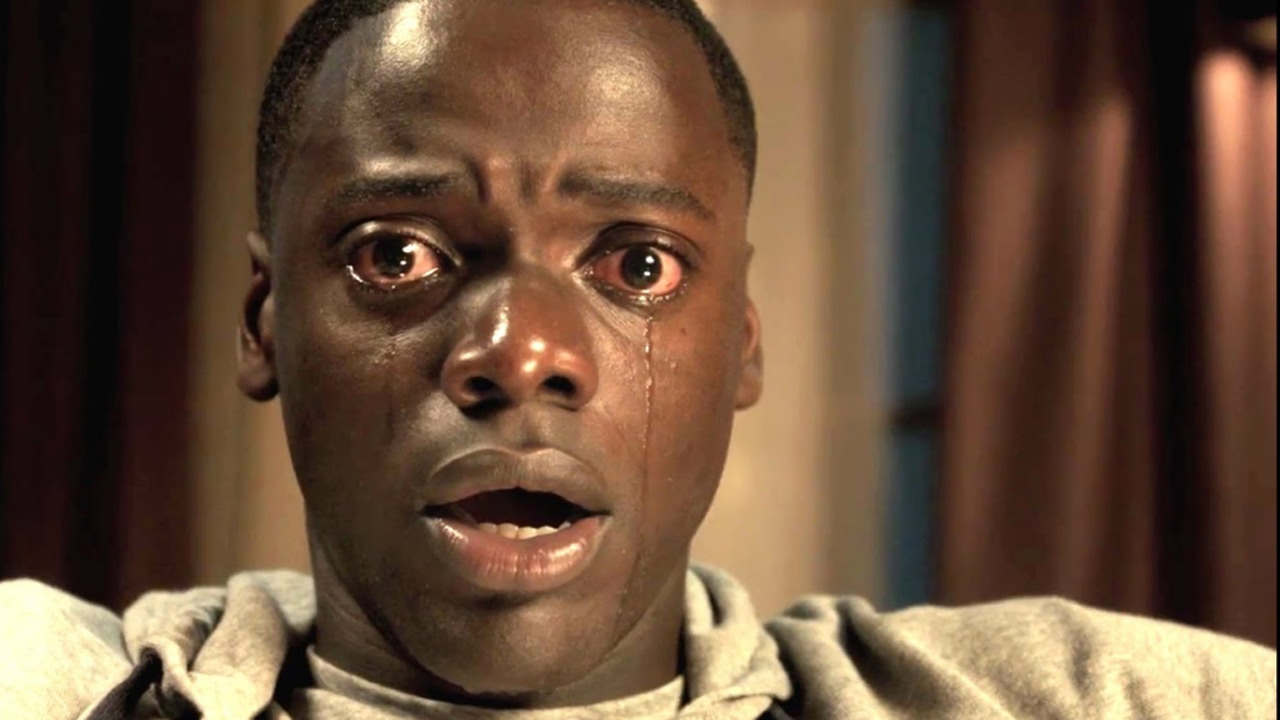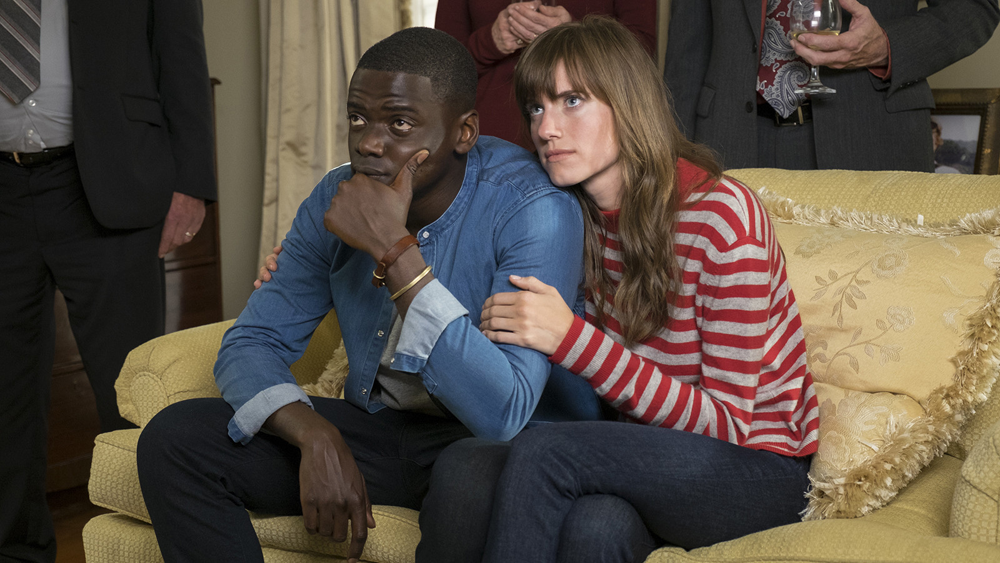Film takes horrifying look at racism in America
Seldom does the horror genre of film get Oscar-worthy buzz. Horror movies tend to be more about the scare factor–ghoulish scenes filled with blood and gore–than about deep content that makes the viewer think.
To be honest, most movies aren’t designed to make us think, they are created to entertain us, and of course, make money. However, the best films are those that not only entertain, but spark commentary about the society in which we live.
This is the case with “Get Out” from writer/director Jordan Peele, who is known more for his work in front of the camera, rather than behind. “Get Out” is classified as a horror film, but it’s suspenseful and satirical look at the African-American diaspora in America, is compelling and elevates the film beyond its given genre.
“Get Out” stars Daniel Kaluuya as young African American Chris Washington, who is in a relationship with Rose Armitage (Allison Williams), a well-to-do fellow student, who happens to be Caucasian. The relationship appears strong and healthy, so much so, the couple decides to visit Rose’s family estate for a weekend getaway. Rose cleverly masks the truth of why she’s taking him to her home, which includes kidnapping African-American people to use their bodies for medical purposes.
Jokingly Chris’s friend Rod (Lil Rel Howery) admonishes him for going to the middle of nowhere to meet his white girlfriend’s family. There’s no good that could from it–is his overall message. Which is befitting the film’s tagline, “Just because you’re invited, doesn’t mean you’re welcome.”
This phrase resonates throughout the film and exemplifies the sentiment of so many people of color in America. Here’s a fews ways that the film reflects racism and racial oppression in our society:
In the below scene, Rose’s mother Missy (Catherine Keener) has hypnotized Chris, unbeknownst to him. In this hypnotic state he becomes withdrawn into his body and is seen floating out into an abyss–disconnected from himself and the world he knows. With a tap of a teaspoon on the rim of a cup, he can be placed in and out of this zombie-like consciousness. This symbolizes the millions of African people who were unwilling brought to a land that they were unfamiliar with, then having to subsequently assimilate into the culture of their captors. Meanwhile, Africans-Americans are losing their cultural identity and becoming engulfed in a new identity. All of this is out of their control.

Rose’s deceptive relationship with Chris symbolizes the ways in which people of color are lured into a system that does not have it’s best interest at heart and uses them to sustain the livelihood of their own cuture, without regard for how it impacts their life. Rose’s relationship with Chris also symbolizes the betrayal that people of color have for those who pretend to embrace them and their diversity, but only do so for their own benefit.

Chris is invited to Rose’s family estate under the guise of meeting her parents. While there, he encounters guests of the family, who are there for a supposed get-together. But, it’s actually an auction to sell Chris to the highest bidder. One of the guests is a blind millionaire is first seen as sympathetic, until his true plan is uncovered–to use Chris for morbid medical purposes in an effort to regain his sight. This interaction exemplifies how people of color sometimes feel as if they are put on display and objectified. Their skills and talents are seen as a valuable commodity, that is an extension of them, yet as an individual person, they are insignificant. This is often seen in the appropriation of African-American culture in their music, style, and demeanor.

Watching this film, one can’t help but think that Peele is sending people of color a covert message to heed the signs and warnings–to wake up and GET OUT! It also can also be a wakeup call for writers and producers who typically release films featuring mostly-black casts or pivotal characters of color, and use stereotypes as the driving narrative in their films.





